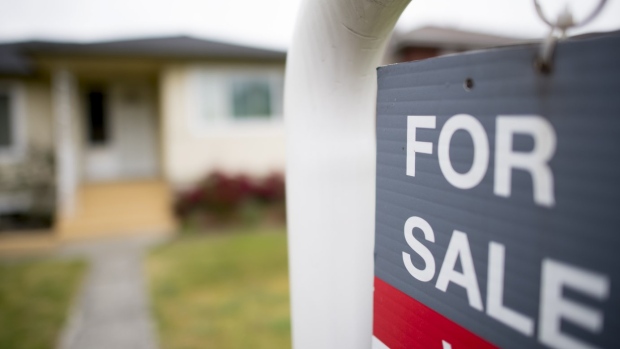“This has become probably the most important both economic and political problem facing the country right now,” said Tyler Meredith, a former head of economic strategy and planning for Finance Minister Chrystia Freeland.
“And especially given the significant emphasis the government has put on immigration and the relationship between immigration and the housing market, there is a need to do more.”



What would happen to your finances if your property value went down?
If my property value went down, not much. It is paid for and I don’t plan on going anywhere, so whatever paper value it has is inconsequential. If anything, it would improve my operating finances as my tax burden would decrease.
If everyone’s property values went down, things would look grim. A large segment of property owners are in debt up to their eyeballs and a decline in value can soon see them underwater, putting them on the verge of bankruptcy. Once they feel the trouble they are going to stop buying the goods and services I sell them.
It wouldn’t ruin me personally, but I wouldn’t be able to move for a new job or resize if we had a kid, or anything like that for probably a decade. It would also kill my goal to move into starting a small business in a few years.
I bought bottom of my budget anticipating some correction, but I’m still quite exposed to real estate prices. I’ve got an emergency fund but if I needed a major repair I wouldn’t have ge option of a HELOC for example.
So regarding your statement here:
So if your property value decreased you’d still be better off than any renters would be.
If you want to talk about how hard it is, don’t even mention renters because the comparison makes your situation look rosy.
I’d love to have a concrete asset worth hundreds of thousands to back me up, but instead I have to spend 60% of my paycheck on somebody else’s mortgage payments and I don’t even get to own anything for all that money I’m spending.
Except my concrete asset is worth negative hundreds of thousands on paper, it’s mortgaged, and it took me near a decade to build up to save enough to buy a home.
And it’s tautologically true someone who could afford a down payment is in a better financial spot than someone who couldn’t. I don’t see the point of a comparison of who’s got it worse, the answer is always people without the ability to save.
My point is there are more than just renters who are getting squeezed right now, we need to properly manage the situation instead of renters blaming honest homeowners while the banks just looked away and let shitty slumlords overleverage themselves and the provincial governments gave them free reign to cover their losses by gouging renters infinitely.
Did your house burn down and you didn’t have insurance to rebuild or how the hell did you manage that? The market has softened a little, but not that much. Well, maybe if it was a $30,000,000 home?
Saying the liberals are in a tough spot because they have to choose between helping renters who have no assets and owners who have hundreds of thousands is obviously going to raise a comparison.
It doesn’t seem like a tough choice from where I’m standing. People like you will recover over time. But people who don’t own homes have nothing to recover. So it’s pretty obvious who needs the help.
But that’s only true if your property value went down, but absolutely no one else’s did.
If property values went down across the board, your ability to do all those things would be basically unaffected.
For most people, nothing. The amount owing is always less than the value of the home in Canada. The economic bubble in the US was caused by people mortgaging 100+% of the value of a house. You’d get people with marginal income financing 100%, plus borrowing an extra $50k or $100k to “make improvements”. No wonder that went down in a ball of flames that almost toppled the US economy.